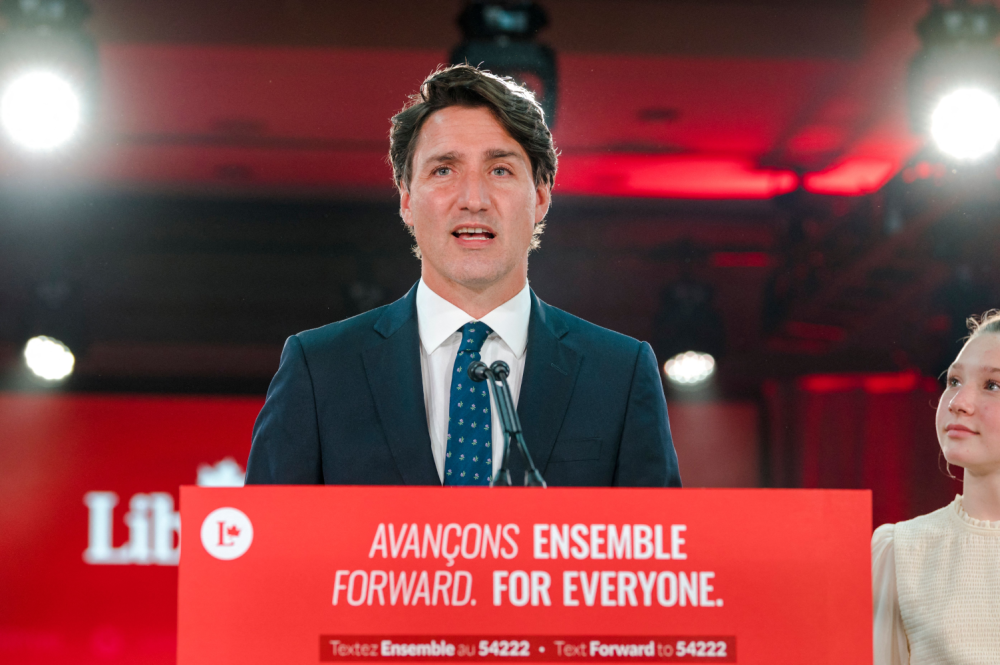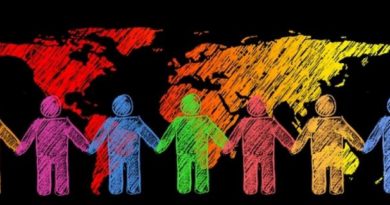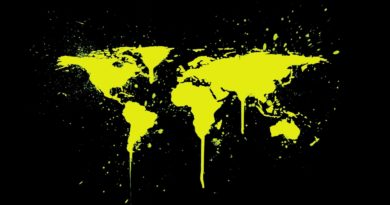Trudeau and Canada Are Out of Big Ideas Despite Victory

When the American journalist Lincoln Steffens returned from a trip to the newly formed Soviet Union in 1919, he remarked: “I have seen the future, and it works!”
Speaking last year at a United Nations conference, Canadian Prime Minister Justin Trudeau swore that, for all the devastation COVID-19 had wrought, governments faced an extraordinary chance to make the future work.
But one election later, Trudeau’s prospects for genuine change seem about as hopeful as the Soviet Union’s.
When the American journalist Lincoln Steffens returned from a trip to the newly formed Soviet Union in 1919, he remarked: “I have seen the future, and it works!”
Speaking last year at a United Nations conference, Canadian Prime Minister Justin Trudeau swore that, for all the devastation COVID-19 had wrought, governments faced an extraordinary chance to make the future work.
But one election later, Trudeau’s prospects for genuine change seem about as hopeful as the Soviet Union’s.
“This pandemic has provided an opportunity for a reset,” Trudeau said in September 2020. “This is our chance to accelerate our pre-pandemic efforts to reimagine economic systems that actually address global challenges like extreme poverty, inequality, and climate change.” Waking up Tuesday morning, the Canadian leader found that resetting is harder than he once imagined.
While mail-in ballots are still being counted, Trudeau has emerged from a particularly acrimonious federal election looking worse for the wear but with a virtually identical House of Commons. Trudeau’s Liberal Party appears to have netted a single additional seat, possibly two, meaning he still presides over a minority Parliament and will need to rely on other parties to govern.
His campaign, and the decidedly status quo results he earned with it, is a grim glimpse into the likely future for progressives looking to “build back better”—a mantra Trudeau repeated often on the campaign. The catchphrase has become à la mode for like-minded leaders worldwide, including U.S. President Joe Biden.
The past two years have been tough for Canada. While it has fared significantly better than the United States during the pandemic, it nevertheless saw thousands of deaths in its long-term care homes. Some provinces saw themselves rocket back-and-forth between partially open and fully locked down. The province of Quebec endured a five-month curfew, under penalty of hefty fines if violated, while Ontario briefly experimented with a police state to keep people indoors. Canadians are exhausted and frustrated in many respects.
Trudeau often looked out of gas as well. From the start of campaigning, the prime minister and his Liberal Party seemed unsure what exactly they were asking voters to help them achieve. But that wasn’t for lack of problems—ones that are set to get worse for everyone, not just Canadians.
Like several hot spots worldwide, Canada’s west coast has been devastated by a series of unusually intense wildfires. Terrifying images from the British Columbia town of Lytton showed the community essentially burned to the ground. The heat wave that sparked the fires killed 570 people in the province, making it the deadliest weather event in Canadian history.
But Trudeau’s climate policy is largely a continuation of his record to date—he went into the campaign promising to reduce Canada’s carbon emissions targets by between 40 and 45 percent, a slightly more ambitious target but below his more left-wing competitors such as the New Democrats and Green Party. He faces criticism for purchasing a pipeline to keep the oil flowing out of the Alberta sands.
Despite vowing a vibrant green recovery, fixated on inequality, Trudeau’s platform offered little that would substantially change the economic status quo. Despite a raging housing crisis, Trudeau is continuing to promise demand-inducing measures likely to worsen the affordability gap. He is pledging substantial new money to expand access to child care across the country, designed to remedy the disproportionate impact the pandemic has had on women in the workforce, but that won’t be fully up and running for another five years.
Trudeau could rely on New Democratic leader Jagmeet Singh to try to cobble together a more stable government or to shepherd more progressive legislation through Parliament, but his style to date has been to govern alone—relying on support from other parties on a case-by-case basis, which often proves acrimonious and difficult.
The post-pandemic—or almost post-pandemic or post-post-pandemic or just-waiting-for-the-next-wave—period was imagined by many on the left as a time for change and big ideas. But there has been little of that from weary voters and wearier parties. There were few big ideas coming from Trudeau’s centrist Liberals. His saving grace may have been that there was even less heat emanating from his main competitors: the Conservative Party and the center-left New Democratic Party. Both parties looked poised to eat into Trudeau’s voter base, only to fall back in the final beats of the campaign.
If figuring out what building back better actually means is difficult, it certainly wasn’t helped by a vocal band of protesters who opposed all manner of public health measures, lockdowns, mask mandates, and vaccine passports.
Trudeau went into the campaign vowing that he would require all public servants be vaccinated and that vaccination would be necessary to take a plane or train domestically or internationally.
Those measures were broadly popular but provoked a series of intense protests that sprung up across the country and even dogged his campaign events. In one of the most tense moments of the campaign, Trudeau was pelted with rocks by an irate protester—who was, it turns out, an organizer for the far-right People’s Party, led by the nationalist politician Maxime Bernier.
The fury didn’t amount to much on election day: The People’s Party won just 5 percent of the vote share nationally, a few points higher than two years before.
But Bernier and his band of disgruntled voters nevertheless made life more difficult for everyone. Trudeau was forced to constantly address the discontent, even if it was wildly overstated, and Conservative leader Erin O’Toole likely bled votes to the People’s Party and was forced to constantly revisit the issue of vaccine mandates—made worse by the fact that he refused to even say how many of his candidates were vaccinated.
Even Singh caught flack, heckled by passersby at his campaign events as a “communist” on a regular basis.
These protesters may be a tiny minority, but they represent a bubbling current of anger that may be more widely held. Their conspiracy theories about Trudeau’s “great reset”—which turns on an international George Soros-led conspiracy or some United Nations globalist plot—may reflect a broader belief among more conservative-minded voters that now is no time for risky endeavors.
Of course, Trudeau is being pulled in exactly the other direction by those growing increasingly worried about the climate crisis, the lingering issues facing Indigenous peoples, and worsening poverty. For them, his great reset can’t come soon enough.
It was a bruising campaign for a leader once a darling of the international liberal order. There is no guarantee he will be able to stay on as leader of his party and prime minister or that he’ll even want to.
If he does, he will either need to put meat on the bones of this “build back better” slogan or abandon the idea of some grand reset in favor of more bread-and-butter issues.
*** This article has been archived for your research. The original version from Foreign Policy can be found here ***


